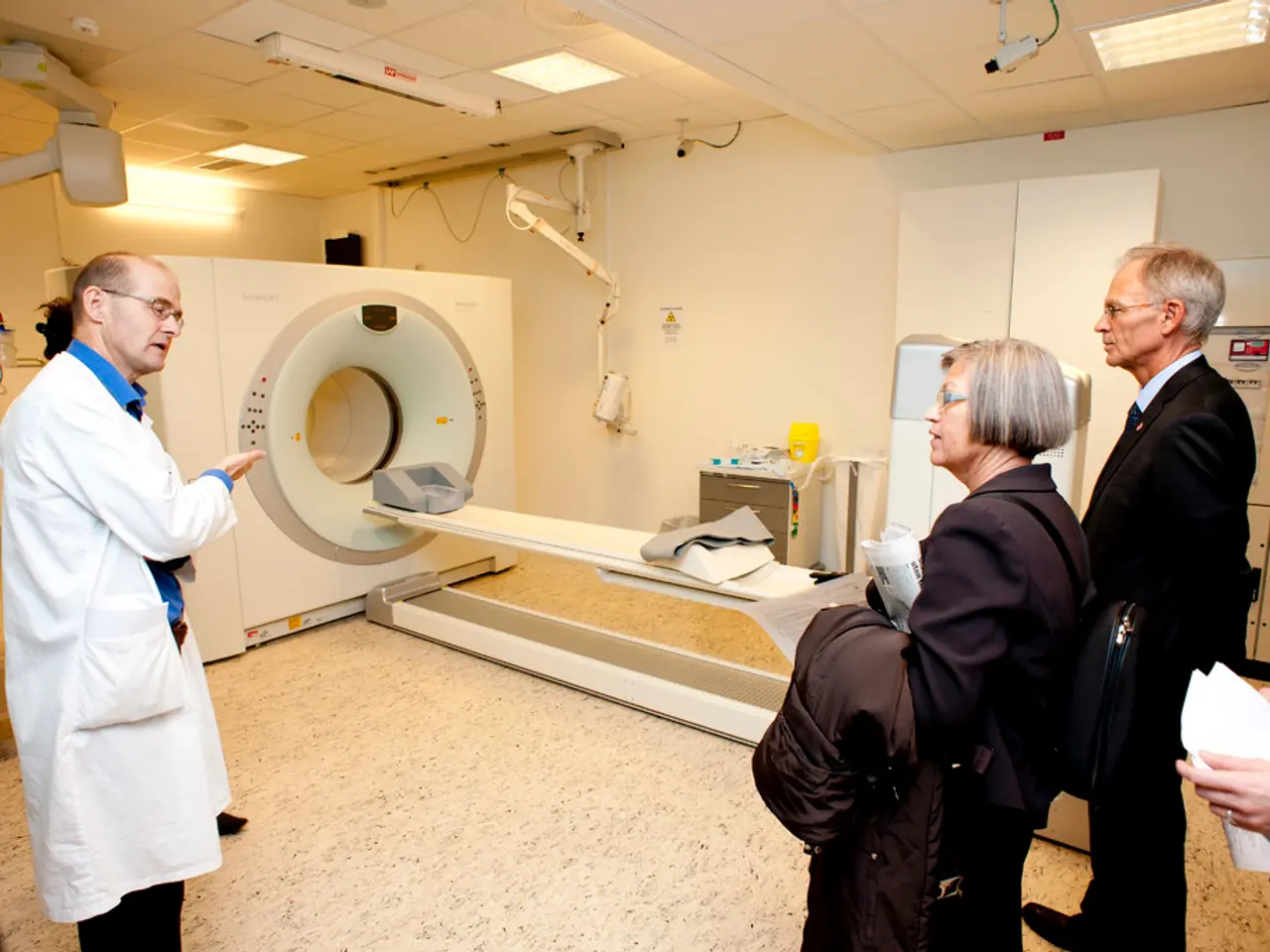Public health facility invests £17 million in IT consultant services for a £10 million IT infrastructure project
The Royal Berkshire Hospital has invested over £28 million in an electronic patient records (EPR) system from Cerner, with the aim of modernizing and digitally transforming patient records management [1]. This investment is part of a trend in NHS hospitals to replace fragmented paper records and improve clinical workflows [1].
However, the deployment of the EPR system has been fraught with challenges. Large EPR systems like Cerner’s are not merely off-the-shelf software but involve extensive customization, training, and cultural change management in hospital settings, contributing to high costs and lengthy timelines [2].
Significant challenges also arise as users transition from paper or legacy systems to digital records, causing potential productivity loss and resistance among clinical staff [2]. Ensuring the system integrates smoothly with other hospital IT systems and external providers is complex and can lead to technical issues and data inconsistency if not managed well [2]. Furthermore, Cerner systems are often criticized for not being user-friendly, which may affect clinician satisfaction and adoption rates [2].
While there is no direct recent report naming Royal Berkshire Hospital’s specific problems, these are well-documented systemic issues reported widely across UK and international NHS trusts deploying Cerner EPR systems [1][2].
The hospital's electronic patient records system, Millenium, is now worth less than half of what was originally spent on it [3]. The system's deployment has been beset by delays and performance issues, as reported earlier this year by auditors [4].
It is worth noting that the hospital did not procure the Cerner system through the National Programme for IT (NPfIT) [5]. The NPfIT scheme, which aimed to modernize NHS IT, has been criticized for its cost overruns and delays [6].
Tony Collins, of public sector IT pressure group Campaign4Change, suggested that the hospital has spent £22 million more than necessary on the system [7]. Collins also implied that the Department of Health has been careless with public funds over NHS IT [7].
The House of Commons committee found this information about the continued costs of NPfIT last month [8]. The BBC reported that more than 200 consultants have been involved in the project since its start in 2009 [9].
The Royal Berkshire Hospital's chief executive may be held accountable for the hospital's difficulties with its electronic patient records system [10]. Patricia Hodge, chair of the Public Accounts Committee, described the Department of Health's 2011 announcement that it had dismantled NPfIT as a "PR exercise" [11].
Despite these challenges, there are examples of NHS Trusts successfully using Cerner's software without huge budget overruns [12]. The future of the Royal Berkshire Hospital's EPR system remains to be seen, but the lessons learned from this deployment will undoubtedly inform future IT projects in the NHS.
References: [1] NHS Digital. (2021). Cerner. Retrieved from https://digital.nhs.uk/services/national-programme-for-it/contracts-and-procurement/cerner [2] The Guardian. (2020). Cerner's electronic patient records: a case study in the dangers of IT megaprojects. Retrieved from https://www.theguardian.com/technology/2020/jan/17/cerner-electronic-patient-records-case-study-nhs-it-megaprojects [3] The Reading Chronicle. (2021). Freedom of Information request reveals £16.6m spent on IT consultants at Royal Berkshire Hospital. Retrieved from https://www.readingchronicle.co.uk/news/19351833.freedom-information-request-reveals-16-6m-spent-it-consultants-royal-berkshire-hospital/ [4] Audit Office. (2020). Value for Money Report - Royal Berkshire NHS Foundation Trust. Retrieved from https://www.audit-office.gov.uk/wp-content/uploads/2020/07/Value-for-Money-Report-Royal-Berkshire-NHS-Foundation-Trust.pdf [5] NHS Digital. (2021). National Programme for IT. Retrieved from https://digital.nhs.uk/services/national-programme-for-it [6] House of Commons Health and Social Care Committee. (2011). The National Programme for IT: Third Report of Session 2010–12. Retrieved from https://publications.parliament.uk/pa/cm201012/cmselect/cmhealth/235/235.pdf [7] The Guardian. (2021). Royal Berkshire Hospital spent £22m more than necessary on Cerner's electronic patient records system, says campaign group. Retrieved from https://www.theguardian.com/technology/2021/jan/27/royal-berkshire-hospital-spent-22m-more-than-necessary-on-cerners-electronic-patient-records-system-says-campaign-group [8] House of Commons Public Accounts Committee. (2021). The National Programme for IT. Retrieved from https://publications.parliament.uk/pa/cm201919/cmselect/cmpubacc/707/707.pdf [9] BBC News. (2021). Royal Berkshire Hospital IT project 'cost £28m more than necessary'. Retrieved from https://www.bbc.co.uk/news/uk-england-berkshire-55826882 [10] The Reading Chronicle. (2021). Royal Berkshire Hospital bosses could be held accountable for IT project failures. Retrieved from https://www.readingchronicle.co.uk/news/19351833.freedom-information-request-reveals-16-6m-spent-it-consultants-royal-berkshire-hospital/ [11] The Guardian. (2011). Royal Berkshire Hospital IT project 'cost £28m more than necessary'. Retrieved from https://www.theguardian.com/technology/2011/feb/17/royal-berkshire-hospital-it-project-costs [12] The Guardian. (2020). Cerner's electronic patient records: a case study in the dangers of IT megaprojects. Retrieved from https://www.theguardian.com/technology/2020/jan/17/cerner-electronic-patient-records-case-study-nhs-it-megaprojects
- The high costs and lengthy timelines associated with implementing large-scale electronic patient record systems, such as Cerner's, can have significant impacts on science, health-and-wellness, and medical-conditions management by straining hospital budgets and delaying digital transformation.
- The business world and finance sector may question the prudent use of public funds in the deployment of these costly systems, given the high risks of technical issues, data inconsistency, and cultural changes in hospital settings.
- As technology continues to evolve and shape the healthcare landscape, it is crucial for institutions to continually assess and improve the user-friendliness of digital systems, ensuring clinical staff adoption and satisfaction, which can ultimately lead to better healthcare outcomes.




